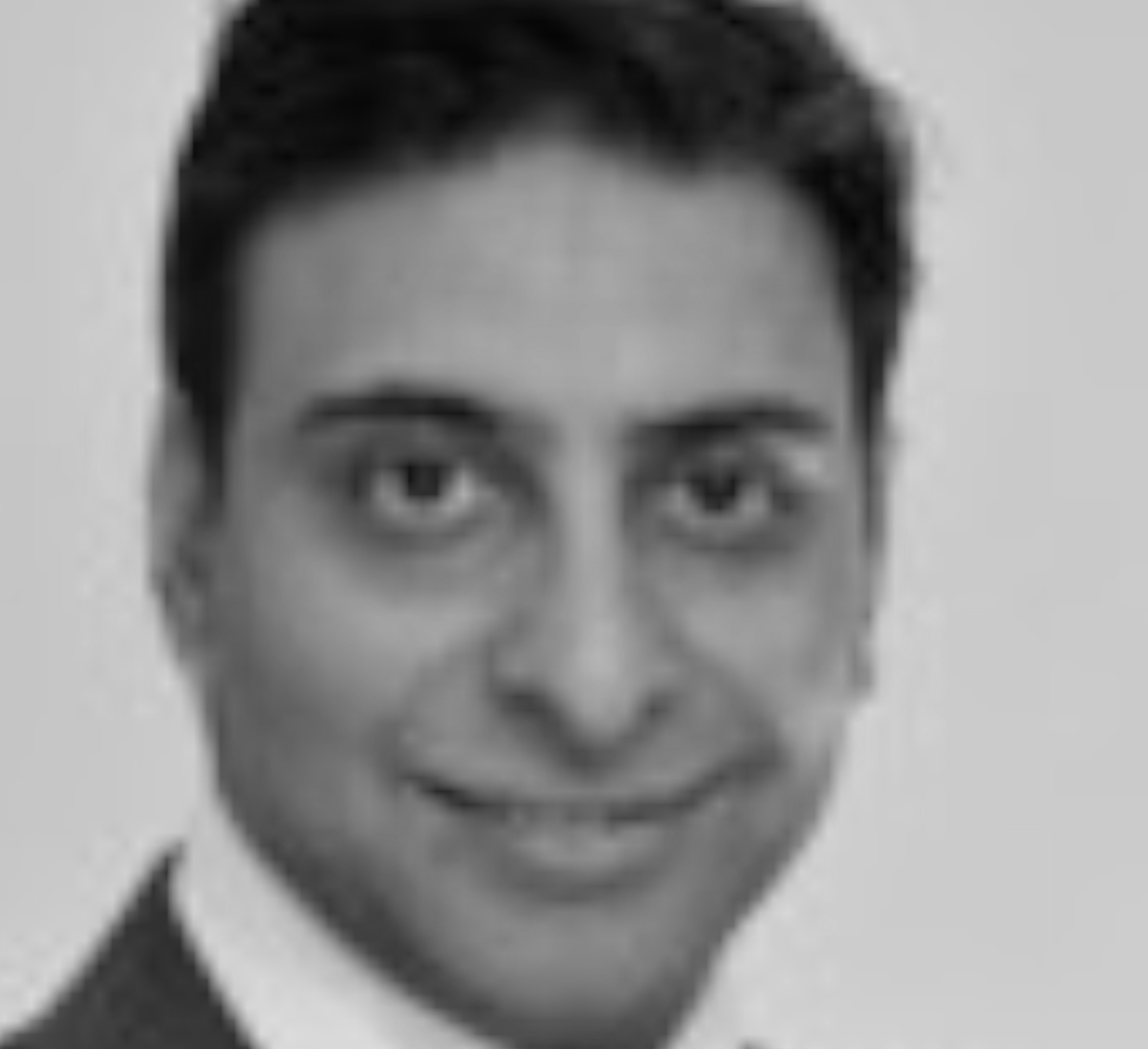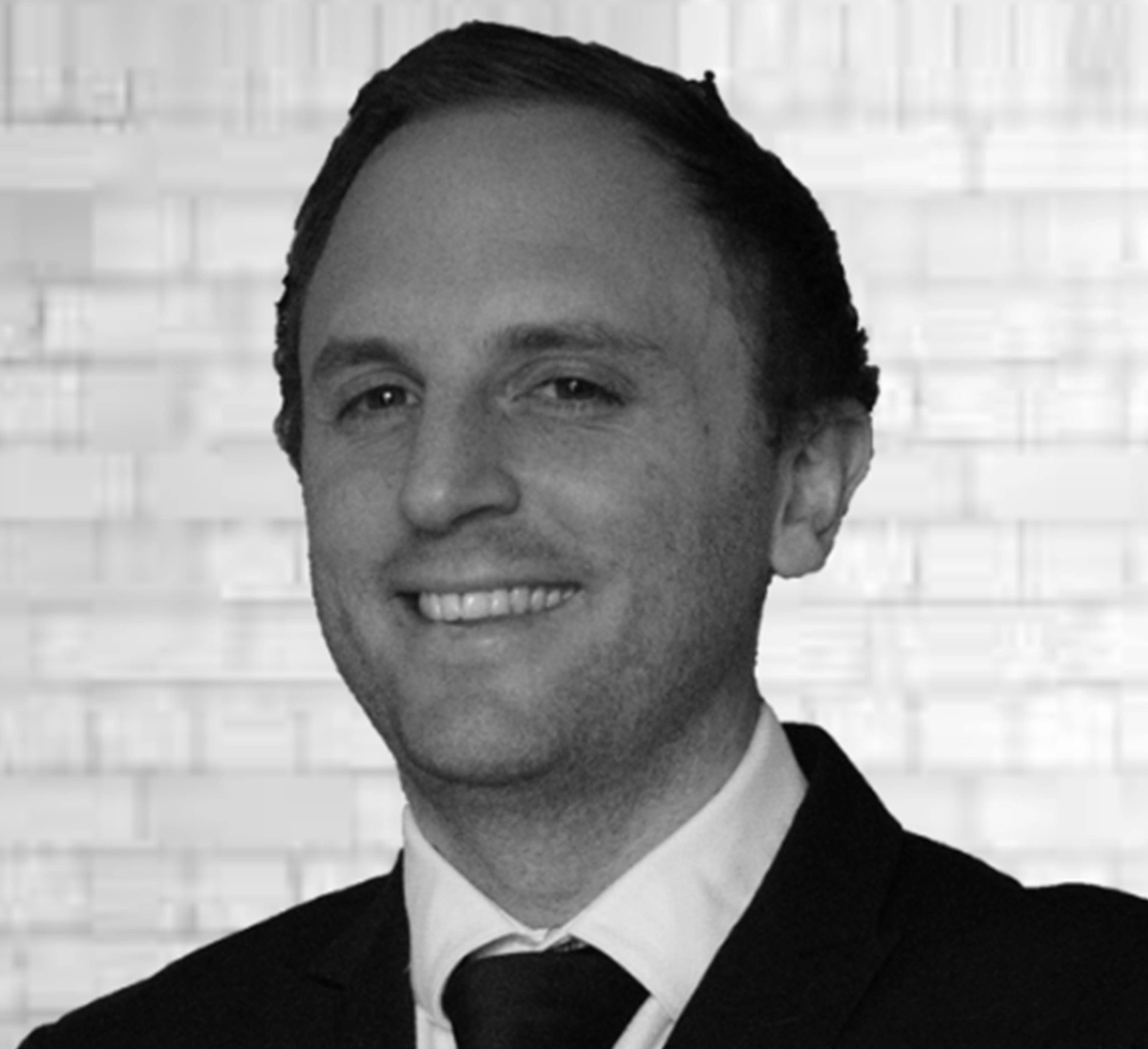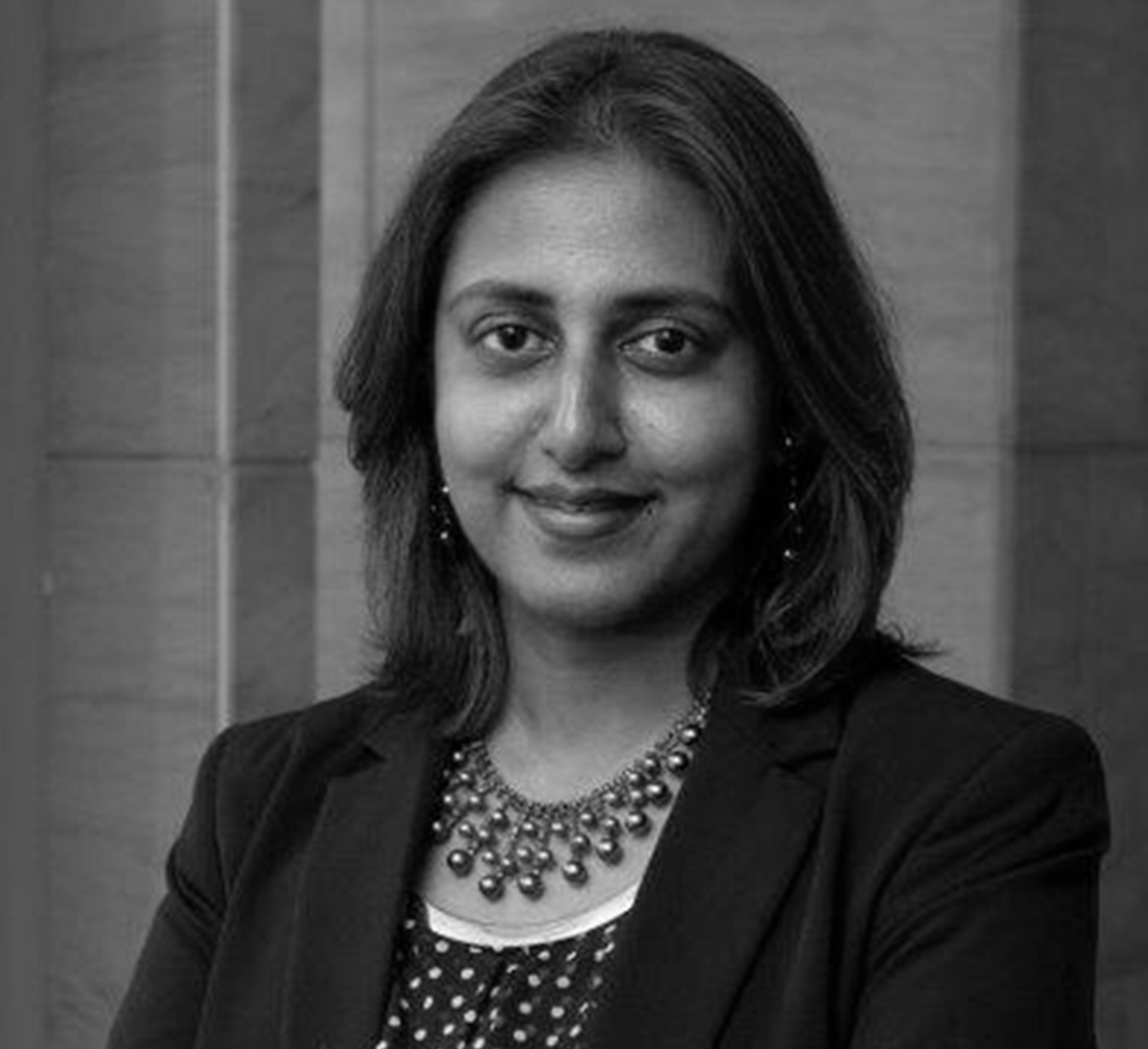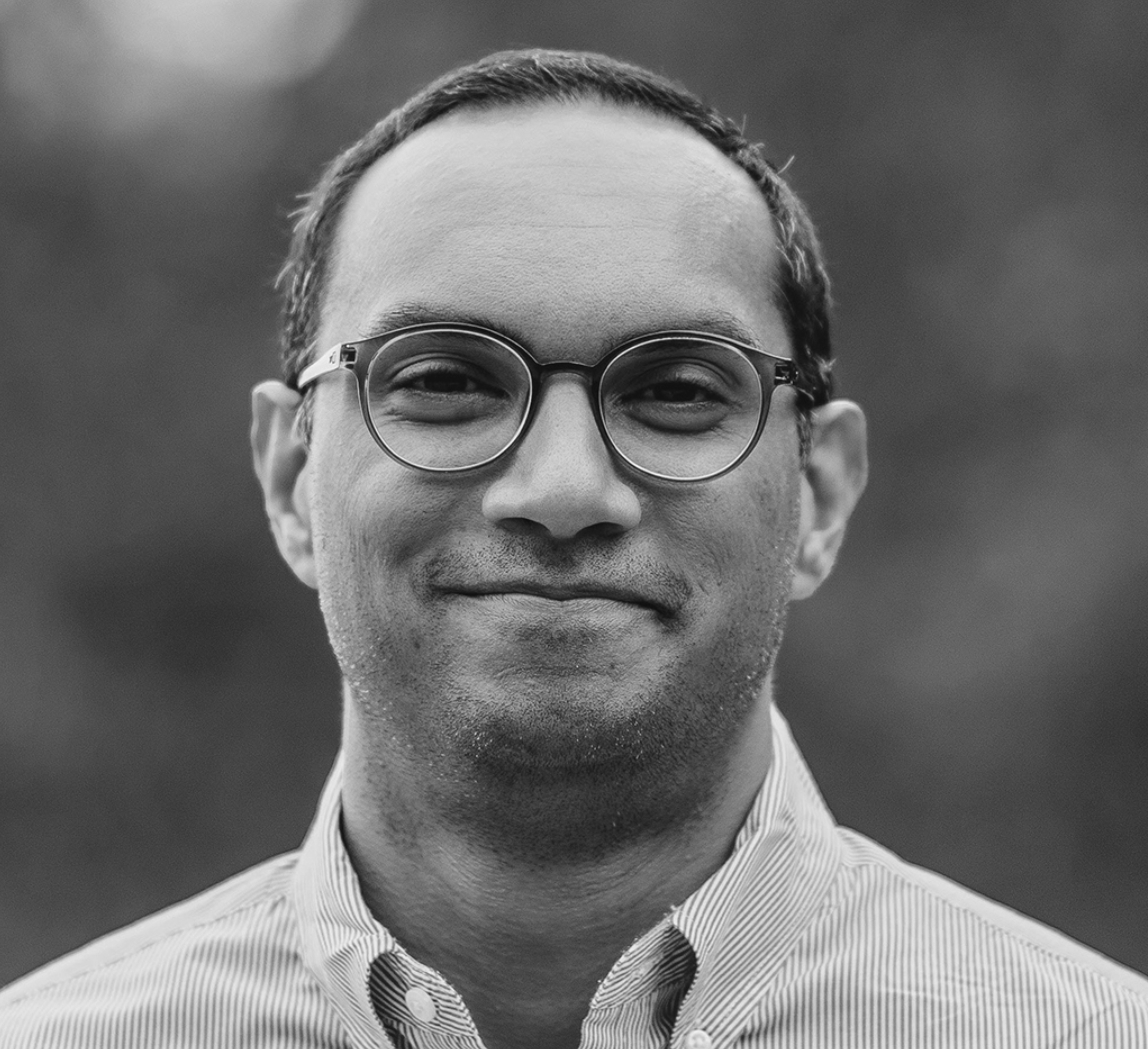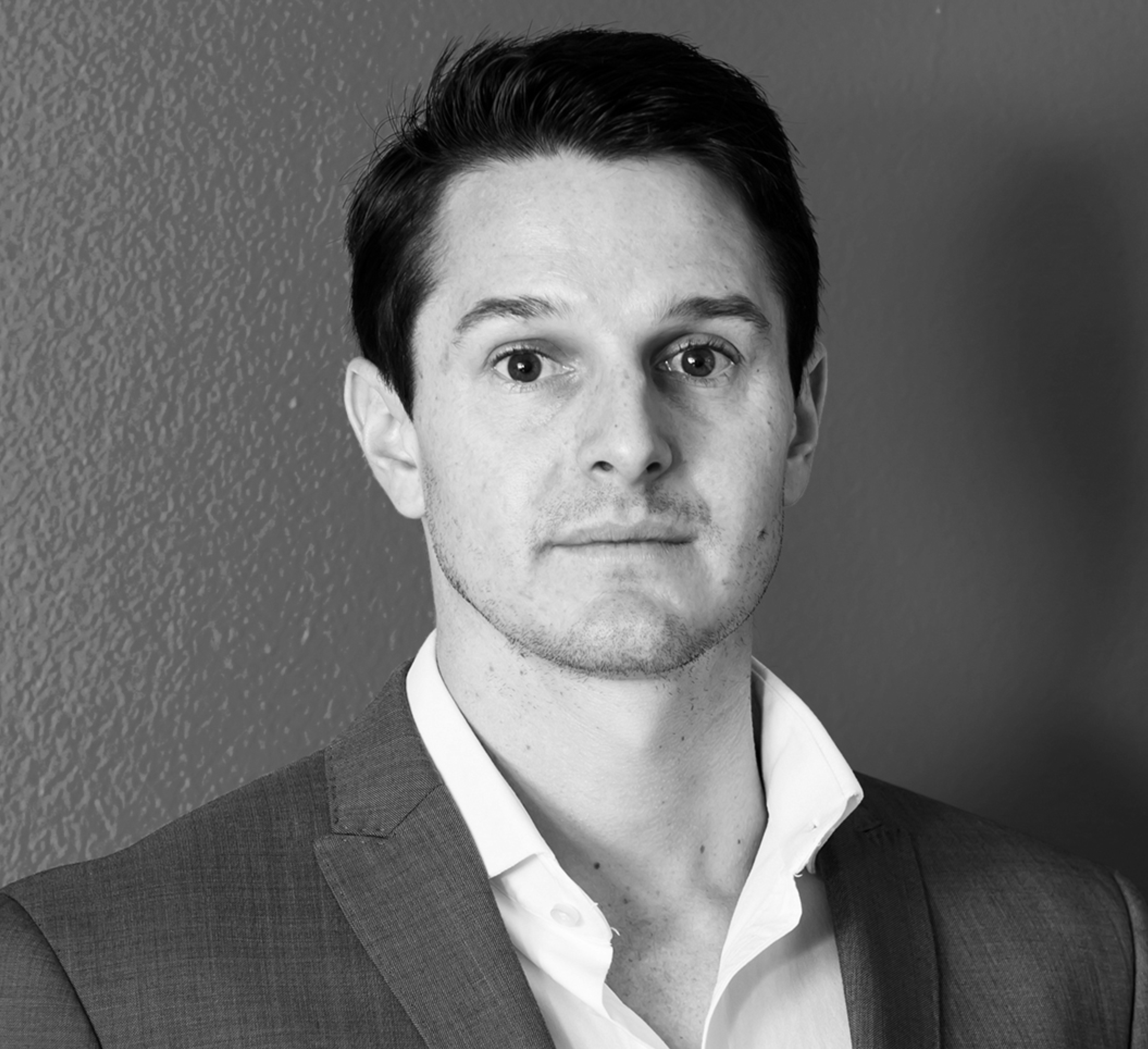97: Mohsin Kalla
CFO Mohsin Kalla – I-Tech South Africa
Since 2018 I-Tech South Africa has trained over 20 000 health workers to manage potential pandemic outbreaks, these skills have become vital to the country and economy in the past year.

CIARAN RYAN: This is CFO Talks and what a pleasure it is to be joined this morning by Mohsin Kalla, who is the CFO at I-Tech South Africa. I-Tech is attached to the University of Washington’s Department of Global Health and has got projects in more than 20 countries. It works with governments, NGOs, medical facilities, and other partners to uplift the level of skill and delivery of national healthcare systems. In this time of Covid, I’m sure these are busy times for I-Tech South Africa. Mohsin has been at I-Tech since 2014, and interestingly, also holds the position of Human Resources Head and Operations Director. That seems to be an increasingly common feature of the role expected of the modern CFO. First of all, welcome Mohsin, how are you this morning?
MOHSIN KALLA: Thank you for having me on your show and I’m good, pretty good under the circumstances of 2020, but that’s life, I guess.
CIARAN RYAN: Good and we’re also joined by Nicolaas van Wyk, Chief Executive Officer of the South African Institute of Business Accountants. Nicolaas, how are you this morning?
NICOLAAS VAN WYK: Hi Ciaran, hi Mohsin, it’s great being with you guys and, again, sharing some CFO insights.
CIARAN RYAN: Mohsin, if you can just tell us a little bit about I-Tech and what it does in the healthcare system, and particularly in this time of Covid, I imagine that your work has become more and more important than ever before?
MOHSIN KALLA: Absolutely, one of the most important things from an I-Tech point of view is we deal predominantly within the public health space, and obviously in light of Covid, it has changed significant elements, not just in I-Tech but across the globe. However, from an I-Tech point of view we actually have been performing some community health worker training since 2018, and essentially this programme is aimed at going into rural areas and training community health workers in dealing with potential virus outbreaks or pandemic outbreaks, and how to deal with individuals who have contracted such viruses or infections. We started the programme in 2018 and during 2018 and 2019 we’ve trained upward of 20 000 community health workers across the country. So we pretty much geared people up for an event like this and that’s one of the key advantages of that particular programme. But 2020, however, hasn’t been as productive from a situation where we could actually deal with similar problems, given the fact that lockdown came into play, and a lot of our work is about on the ground training or in the area training, so we’ve had to rely a lot more on remote training, which is not really the same thing when it comes to this kind of work.
CIARAN RYAN: Okay, so University of Washington Department of Global Health, it’s just interesting that they have these projects going in 20 different countries, do they have a reputation, do they have a very strong faculty in this area, how is it that they come to be represented so strongly here in South Africa?
MOHSIN KALLA: They do have a very strong public health area and I think a lot of the major universities across the planet, and what happens is there are certain programmes through primary health partners, such as the CDC, the World Health Organisation and various other organisations in terms of what requirements are needed or if there is a particular shortfall in one of the 20 countries that I-Tech operate in. The University of Washington would apply to fulfil some of those requirements and based on that, that is how we pretty much get funding and then we’re obviously measured on our deliverables. So it’s important to have the kind of depth across the various public health sector environment in order to ensure that you can actually compete and provide the necessary level of training that is recognised on a global level.
CIARAN RYAN: I noticed that South Africa has tested about 4.5 million for Covid and that’s nearly 10% of our population, it’s probably more like 8%, it’s a very good percentage, and we seem to be getting a lot of plaudits and pats on the back from the World Health Organisation for that. Did your organisation have any role in that, in the assisting of training of people for Covid testing and monitoring?
MOHSIN KALLA: We were not involved from a Covid-19 point of view at all. However, as I mentioned earlier, we did train community health workers in dealing with patients who are struggling and suffering from various viral or bacterial or health-related issues on a community-wide level. So that was our involvement in training people and bringing them up to scratch over 2018 and 2019, and even during prior years. So during the 2020 Covid-19 situation we didn’t have to train anybody because we had already upskilled people during the prior years. That pretty much helped us and helped the country quite a bit. During the current year no, nothing was physically needed in order to carry on training. When we were speaking to some of the community health workers and a lot of them were saying that this is a very viral disease that is spreading but our past training hasn’t changed based on the severity of the virus, we still adopt the same principles of wearing appropriate clothing and ensuring we have masks and we sanitise before we visit any infected individual and afterwards. So the training doesn’t change, it’s always been there, it’s just about the application of that training. As long as it’s been done in the past, it’s still applied now.
‘There most certainly will be a next pandemic”
CIARAN RYAN: Nicolaas, I see you wanted to ask a question there?
NICOLAAS VAN WYK: Yes, I am on I-Tech’s website, it looks very impressive with all those medical products that you produce and make available. Playing in this healthcare space, if I may ask a public policy question, we all know about medical costs being so expensive, and there’s lots of technology going into this area and field, and we know that South Africa is talking about national healthcare for everybody. How do you foresee on one hand reducing medical costs for everybody and on the other hand, a more public approach to healthcare and does that affect your business?
MOHSIN KALLA: There are two very important questions there, I think if you were to look at public health or health at large, in light of Covid-19 I think the most important thing that one has to take into consideration is that there will be a significant paradigm shift in the way we approach health-related issues, predominantly from a public health point of view. Covid-19 has taught us that the world went into lockdown in such a quick way. If you think back a year ago there was a trickle of news of a potential viral outbreak in Wuhan, China, and nobody really bothered. But then by January it grew significantly in China and by March the entire world had shutdown. Only then could we actually realise where our shortfalls were in terms of having available resources to treat infected people, whether it was a shortage of ventilators or hospital beds or even basic things such as face masks and gloves, those things took a while for us to actually produce and be at a level where we were adequately equipped. So I think, personally, what will happen in the future is there will be a lot more focus not just from an individual point of view but from a countrywide point of view and international health organisations about focusing more on where our shortfalls are in the future, so that we can be ready for the next pandemic because there most certainly will be a next pandemic and we have to be ready for that. I think from an individual point of view, what will happen is that we will obviously spend more money and power on health cost, it’s one of the key areas that’s constantly increasing and I think that in light of everything…costs are going to rise and we need to be more cautious and planful about that increasing cost. As far as our organisation is concerned, again, there are more projects that will be allocated to various different programmes aimed at improving health. Some of the projects that I see coming out over the next couple of years will probably be more in mental health areas and those are areas that we would never even focus on in the past, it’s just that because there’s more of a focus or more improvement or paradigm shift, there will definitely be more resources available and allocated to it. So I think the future does look good from a public health point of view.
CIARAN RYAN: Can we talk for a minute now about the role of the CFO, you’re not just the CFO, you also run the human resources and the operations functions within I-Tech. Give us your view of what is expected of the modern CFO, is it a case of being able to learn and do everything? In other words, you are multitasking where you are, is this going to be the expected role of the CFO going forward?
MOHSIN KALLA: The most important thing that I realised is that in the past you think CFO, you think finance, you think cashflow management, you think balance sheet and bank and all of that stuff. But I think going forward, there’s always a shift and change. As a CFO, historically, before I even inherited both the HR and operations role, I was always technically involved in HR from a payroll point of view or in operations from a smaller point of view, but I think that going forward and not just my role, I think a lot of the CFO roles as well, become more comprehensive. So you need to have more overall aspects in terms of not just HR and operations but the entire business as well. What this role has taught me is that from a finance point of view, having a more significant role to play in human resources and operations, I was able to contribute significantly more from a knowledge base point of view so that we actually changed a lot of aspects of the way the business operated. Whereas in the past, you’d have reliance on a human resources director or an operations director to make certain decisions, and you’d only get involved in various stages of the process. But having a complete overview of things allowed me to actually make much more better and efficient decisions. There is, however, certain negatives with everything and that is with the inheritance of both the HR role and the operations role, your workload does increase, so you need to have that additional support level below you to help you carry out some of those tasks. Otherwise you’re just not going to be able to complete every single thing. But I think the future is more roles where CFOs will be involved in other areas within support, and one area that isn’t mentioned here is the ITC, which is information technology and communication, and I think that given the digital age, the way we’re operating, even though currently it’s housed in operations, it will be definitely be more of a separate line item and CFOs will be more involved in those kinds of roles because at the end of the day, most of the users of ITC generally come from [indistinct] areas, so you need the ultimate users to be making some of those decisions. That is probably the way forward. Then if you also look at and if we take it in context with Covid-19, we are entering areas that from a workspace point of view that were not there before, we all worked from home during lockdown because we were forced to but in the past it wouldn’t have even been considered, you’d have to go to the office every single day. But when working from home, we realised that there were significant efficiencies that were created, you saved on the commute, you saved on so many other different things, and people had a little bit more of a balanced life. We actually got more efficient in terms of hours worked, and I know that from a personal point of view, I was working odd hours, whereas in the past once you leave the office, that’s it. So the technology involved in that particular aspect, as well as the human resources aspect requires further involvement, and so I think from an evolutionary point of view, CFOs will be much more involved in the other support areas, and you would need someone to have a more comprehensive overall viewpoint, and that, for me, is very important. I know some of my sister companies or certain other companies where they have some of the roles like this, but in their case, it was actually the COO who was really the leading individual and then they have a CFO reporting to them and HR reporting to them. Whereas in my case in I-Tech it’s a CFO role and the other role combined. So it’s an evolution where we are more comprehensive in terms of just the entire role, not just finance related, but the other elements as well.
CIARAN RYAN: Nicolaas, you wanted to ask a question there.
NICOLAAS VAN WYK: Thanks Ciaran, yes, that was quite insightful. We see that with all the CFOs who we interview, this expanding role, and HR is definitely part of that. So there’s a whole portfolio or a range of skills that the modern CFO needs to acquire, so it takes a particular type of person to achieve that. So maybe a little bit from Mohsin about how he manages to keep all those balls in the air and those are different subject areas. Would you describe yourself as a general specialist, to use a medical term?
MOHSIN KALLA: [Laughing] Very interesting, starting off in the CFO role and then migrating with the additional responsibilities, at first it was a significant adaptation period involved. Coming from a finance point of view, numbers have always been my game and it’ll always be that, and when I took on the HR role, for instance, and there are some elements of HR role where finance is already involved with regard to payroll and payroll tax and then a submission of IRP5s and all those elements. So I always knew those aspects but having to understand the human element that human resources are actually involved in, having inherited this role, I have new respect for human resources and some of the other elements of HR and operations because you realise from an HR point of view, the actual relationships that they build with the staff, it’s so much more intimate than from a finance point of view. So it required a significant change of thought. I wouldn’t say that I’ve become a generalist, I would say that I’m a specialist in each of those areas, rather than just an overall generalist. During the first six or seven months of actually having taken over, inheriting all those roles and combining them into one, the role that took up 90% of my time was the human resources role. I used to always look at my HR Director and he’s a very, very good friend of mine, and I was like, dude, you only work once a month, and when you’re hiring or getting rid of people, other than that you are chilling, that’s why you’re always so happy. But you don’t actually realise the needs of individual staff members on a daily basis or they are concerned on a weekly basis, you actually realise how busy you actually are. You’ve got to constantly be in a position where you have that link with staff and you’re updating them with various things. Staff generally need to know that you are there for them or you are there, and that took up a lot of my time compared to the areas of operations where it’s similar to finance because there are processes and structures in place and you’ve just got to follow them. Whereas in human resources even though you have your policies in place, you still have to manage each situation.
‘Everything I knew from university…I threw it out the window’
CIARAN RYAN: Okay, the question I wanted to ask you was in terms of the colleges and the universities, academia generally, do they prepare you for the role that you find yourself in as a CFO or are there some disciplines and skills that you only learn on the job?
MOHSIN KALLA: Absolutely, a very, very good question. When I went to university, the most important thing is you get the theoretical knowledge about how accounting works, for instance, you’ve got to do debit, you’ve got to do credit and the natural skill. But when you actually join the workforce, you think as an individual that you have all the necessary accounting knowledge, and you will conquer this thing. But I recall from my, from my point of view, from my personal history, I joined an accounting firm and everything I knew from the university, from an accounting point of view, I threw it out the window. I started again and it took me a couple of months of working and then only that university knowledge started coming into play, then you can start expanding on it. But from a work point of view, when you’re first entering the job market, I think you shouldn’t say, okay, I’m a qualified chartered accountant or I’m a qualified attorney or whatever role you are entering, experience-wise you don’t have any knowledge but you know your experience will accelerate because of the university knowledge, it comes in maybe a couple of weeks or a couple of months later. But when you’re first starting, whatever I knew at university didn’t matter, I had to start again because here I was dealing with clients, and they don’t teach you that at university, how to deal with clients. If you studied finance, they teach you how to balance books and do a debit and credit and all the other things, and here you have to deal with clients, and it was an audit firm that I joined. Then you had to deal with SARS and, again, you can’t get taught all of these things. Those are more administrative roles and you had to sit there and discuss various issues with regulatory individuals, and all of those elements don’t exist in a university environment, and it’s very hard to create certain things in a university environment. I had to learn that on the job but obviously once you’re actually in the role for a while, then that university knowledge starts to come in significantly. So you get then to see the bigger picture and that knowledge then consolidates. So it does take a while for the two to actually marry each other. By that I mean the experience or work and the knowledge or the qualification at university, it takes a while for them to marry each other. Once they do that’s when you truly accelerate and then you can apply everything theoretical in a practical environment and you know how to do it. But upfront you’re basically green and that’s how you should have that mental aspect when entering the market. Whatever knowledge I know, I need to park it, and this is completely new. Once you can do that you are able to absorb a lot more faster.
CIARAN RYAN: Nicolaas, you’ve got some experience of this, what do you say about this,
the role of the modern CFO, do the academic institutions adequately prepare you for this?
NICOLAAS VAN WYK: I always refer back to the research that was done in Canada, moving from CA to CFO, and in there they also exactly identified what Mohsin has now stated, this merging and integration of your academic studies into workplace experience to finally end up as a CFO. That’s why we then started our designation, CFO (SA), because what we saw was that we can’t teach these guys how to be CFOs, they have to learn that on the job. But what we can do is we can give them recognition for when they finish. So that’s when we started our designation CFO (SA), and now we’re going backwards to universities or backwards engineering or reengineering and telling them, listen, these are the competencies that we see in the market that the CFO needs to have, HR, strategy operations, all the things Mohsin has mentioned. So we’re just about to launch one now with the University of Stellenbosch, we spent a few months with them identifying these skillsets. So we’re very excited, I think it’s a role that hasn’t been picked up yet or responsibility, nobody’s really looking into that, but I think that our designation will address these shortcomings.
CIARAN RYAN: We’re just running a little bit short on time here. So I’ve got a couple of quick questions I want to fire at Mohsin. We haven’t really discussed you and your career journey, just tell us about that in one minute, if you can.
MOHSIN KALLA: Sure, by all means. Well, I’m going to move backwards, currently I am the Chief Financial Officer of I-Tech South Africa and also the HR and Operations Director, and I’ve been in the role since 2014. Prior to that, I was a Treasury Manager at MultiChoice Africa, I managed the treasury functionality for MultiChoice across 44 Sub-Saharan African countries. Before that, I was in banking and investment banking and very much in bank as a financial manager, and I spent quite a number of years at RMB learning pretty much every aspect of banking, from retail banking to investment banking on a detailed level. Before that, I was in an audit firm up until the audit manager level. So it’s been pretty comprehensive career for me over the last 20-odd years, going to various different areas, and this is where I ended up in a CFO role, and the various aspects of the different areas of experience come into this particular role at a different level. So that’s pretty much how I got to where I am, in less than one minute.
CIARAN RYAN: Okay, thanks, are you based in Johannesburg or where are you?
MOHSIN KALLA: We are based in Pretoria.
CIARAN RYAN: Just tell us about the team that you have or what is the size of the team because you already mentioned that you’ve taken on these additional responsibilities and you need the support team to make sure that you don’t drop any balls, maybe just explain that quickly.
MOHSIN KALLA: You’re right, in finance I have a number of team members, so there’s a financial manager who manages pretty much the entire financial operation and overseeing that. Then below the financial manager there are a couple of junior staff, different levels of experience, financial staff, there are three of them, they manage the general financial functions, whether it’s accounts payable, bank reconciliation. Then in HR there are two people who report to the HR Director and they carry out the physical HR functionality of preparing payroll in certain instances, and in other instances creating job structures for new employees and new hires. Then in operations there are quite a number of people there because there’s a significantly wider functionality. So there you’d have an operations procurement officer, a different officer for logistics, which is a very important aspect to our business, and below them will be a significant amount of junior individuals responsible for procuring things for travel, for the various aspects of operations. We have a lot of drivers in our organisations because we travel quite a bit and all of these aspects fall under the operations function. So there are quite a number of people and it ranges in our organisation, and it does go up depending on the amount of funding, so the more funding we have, we have got to increase our numbers, and in the lean years reduce some of our numbers. So I would say that the support numbers go from ten up to 25 at any given time, depending on the amount of programmes you are running at that particular point in time.
CIARAN RYAN: Okay, final question, this is the obligatory question for everybody who comes to CFO Talks, what books would you recommend, and you’re not allowed to leave unless you give us a good one.
MOHSIN KALLA: For me, from a personal point of view, when it comes to books, some of them have absolutely nothing to do with finance. But the one that I have actually completed lately is a book that’s been out an awfully long time, I think it came out about 20 years ago, and for some odd reason I never actually got to read it, but the one I am truly enjoying is Confessions of an Economic Hitman by John Perkins. I’m not sure if you’ve heard of the book?
CIARAN RYAN: I’ve read it, it’s fantastic.
MOHSIN KALLA: It’s absolutely fantastic and it’s just a book that shows you how a corporate, using individuals, walk into a country and literally capture that particular country. In this book’s case it was a Far East country and this individual goes in there and literally convinces the government or the president of the country to invest or borrow money, and invest in huge infrastructure programmes, in this particular case it was electricity. Obviously, the country didn’t need it immediately upfront, it would have eventually, but what happened was the country was then in debt to various organisations in the West and they became a slave to that. Whereas in the past that didn’t exist. It’s such an interesting concept to see how this has been done, it’s been done in history over the twentieth century, it’s a really, really amazing book.
CIARAN RYAN: It gets much worse than that, doesn’t it, because it’s written by John Perkins, Confessions of an Economic Hitman, and he talks about entering into this a private consulting firm in Washington, which was just infiltrated with intelligence people, and they would be going around the world, they would be encouraging, it starts off with a level of encouragement, borrow this money, you can build this dam or you can build this road. Then you end up in a position where you cannot pay, and if you then don’t change your government rules or allow or open up your economy to some large American corporation, they call them the jackals, the jackals move in and then very nasty things start happening.
MOHSIN KALLA: Exactly, you become a slave to the debt and once you’re slave to the debt you are subjugated by various other elements, and then that’s pretty much the end of your freedom, whether it’s economic freedom or any other freedom, but you’re forced to play by somebody else’s rules, which you can never get out of that debt. What this book taught me is how the world operated and maybe it doesn’t happen as much now, but in the twentieth century we’ve learned that lots of these countries actually went through this and it’s a kind of sad reality, but that’s what it is.
CIARAN RYAN: That’s what it is. Mohsin, we’re going to have to leave it there. I think we could talk for an hour on that last particular subject but I was very interested to hear about your take on the role of the modern CFO and the different elements that you are bringing to that position and it is an evolving role, and I really appreciate you coming on and talking to us about that. Let’s stay in touch because I think this area that you’re in is so vital to the economy. Perhaps when things have settled down a little bit more, let’s get you back on again. So thanks very much for coming on, Mohsin.
MOHSIN KALLA: One final thought, like I said, Covid-19 has changed the paradigm shift in terms of not only the workspace but in how we approach public health, and there will be significant shifts once we actually put Covid-19 to bed, there will be significant shifts in the way we approach public health. It’s interesting times going forward.
CIARAN RYAN: Great stuff, thank you, and thank you also to Nicolaas van Wyk for joining us. NICOLAAS VAN WYK: Thanks, Ciaran, thanks Mohsin, I’ve learned a lot and it’s been nice speaking with you. I think the listeners will really appreciate this.

